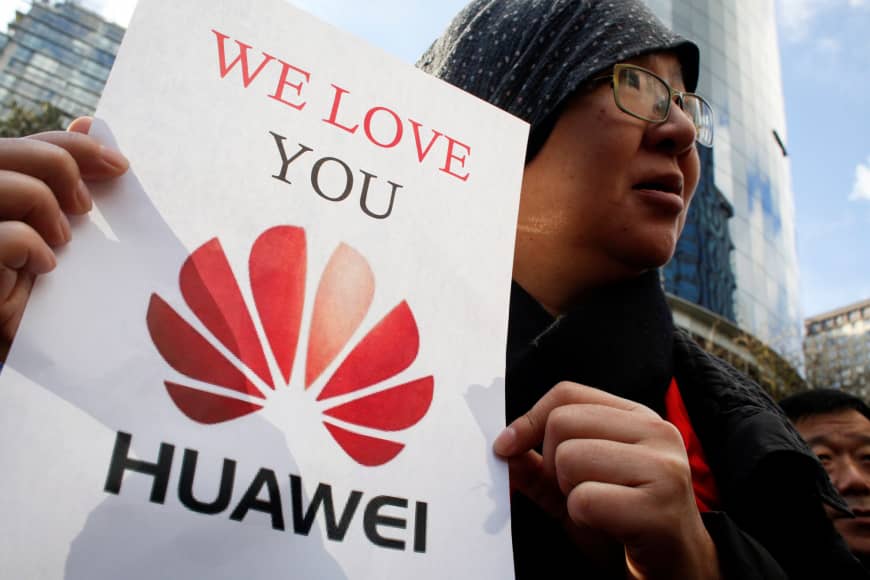Chinese Government on Thursday, said it had lodged “solemn” protests with the U.S. over the “bullying’’ of technology giant, Huawei.
According to Spokesman of the Commerce Ministry, Gao Feng, the best response to the U.S. bullying is that Chinese companies continue to grow and develop.
China’s comments is coming as more foreign firms are responding to pressure from U.S. sanctions on Huawei.
Japanese electronics company, Panasonic, also said on Thursday that it was planning to suspend the provision of some components to the Chinese technology giant.
Panasonic said in a statement that it should suspend transaction with Huawei and its 68 affiliates that were banned by the U.S. government.
Panasonic is now examining which products could be subject to U.S. sanctions.
Japanese mobile operators have also put the sale of new Huawei devices on hold or do not want to accept new orders out of concern that Google could no longer provide services such as Android, to the Chinese company.
Even the British chip designer, ARM, which belongs to the Japanese company, Softbank, has discontinued its business relationship with Huawei, according to a report by the BBC.
Without a licence from the British, Huawei will not be able to develop ARM-based processors.
Huawei’s own Kirin processors for mobile phones are based on ARM architecture.
Huawei founder, Ren Zhengfei, told Chinese economic magazine, Caixin, that ARM’s cooperation with Huawei will have “no impact” on the telecom giant.
The interview later disappeared from Caixin’s website.
Tokyo’s stock market slumped on Thursday amid concerns over the impact of the Huawei sanctions on Japanese suppliers.
The Nikkei index for 225 leading stocks lost 0.6 per cent of its value to reach 21,151.14 points.
The U.S. last week placed Huawei on a blacklist of companies whose business relationships with U.S. partners are tightly controlled.
U.S. President Donald Trump justified his steps with security concerns about technology from China.
The accusation is that the Chinese government could gain access to data on Huawei devices, a claim Huawei rejects.
Since the allegations have not yet been substantiated, many experts see the sanctions in the context of the ongoing trade conflict between the U.S. and China.
Negotiations between the two sides broke down this month, resulting in the U.S. hiking tariffs on 200 billion dollars’ worth of Chinese goods, and China retaliating by raising duties on 60 billion dollars’ worth of U.S. imports.
Gao said China expected “sincerity’’ if the U.S. wanted to resume talks.
“There are principles for cooperation, there is a bottom line for negotiations, and China will never give in on [a] major issue of principle,” he said.
Anyone who wants to sell or transfer U.S. technology to Huawei now has to acquire a licence, which can be denied over security concerns.
In 2018, Huawei received six billion dollars’ worth of components from Japanese companies such as Panasonic. (dpa/NAN)




 Premier League
Premier League